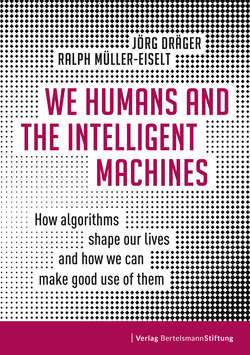Читать книгу We Humans and the Intelligent Machines - Jörg Dräger - Страница 19
На сайте Литреса книга снята с продажи.
No glorification
ОглавлениеThe quality of human decision-making is unsettling and impressive at the same time. Unsettling because empirical research shows that even experts in their field sometimes decide poorly, incorrectly, inconsistently or not at all. Impressive because, despite these obstacles, the overall results are improving. Today, radiologists examine many times more images than their predecessors had to cope with 20 years ago, and they diagnose them more reliably.
People set themselves goals and pursue them. And they build tools so they can achieve them. Algorithms are such tools. They can help people compensate for their own shortcomings and gain new room to maneuver. In radiology, for example, more support from machines can give humans more time to reflect. As Michael Forsting of Essen’s University Hospital says: “New technology must help us to improve – to retrieve more information from scans, to avoid errors typically made in radiology due to fatigue or tedium, to better recognize rare conditions.”20 Intelligent machines will bring the greatest social benefit not when they merely save time or human resources, but when they improve quality.
Good algorithms are needed to achieve key societal goals such as better health and more equitable education. But even those algorithms, it turns out, make mistakes: They can draw wrong conclusions or discriminate against social groups. In judging their weaknesses, however, we should not overly glorify our own abilities. We are not perfect either, we cannot do some things as well as we think we can. The interaction of humans and machines must be designed to ensure that their respective strengths are utilized in a way that reduces their respective weaknesses.
